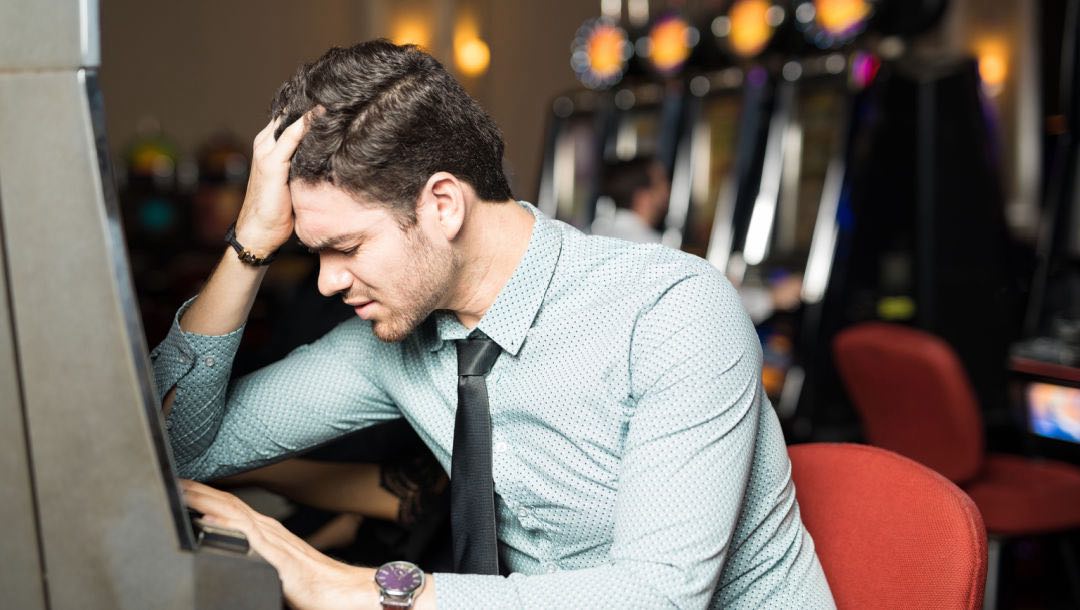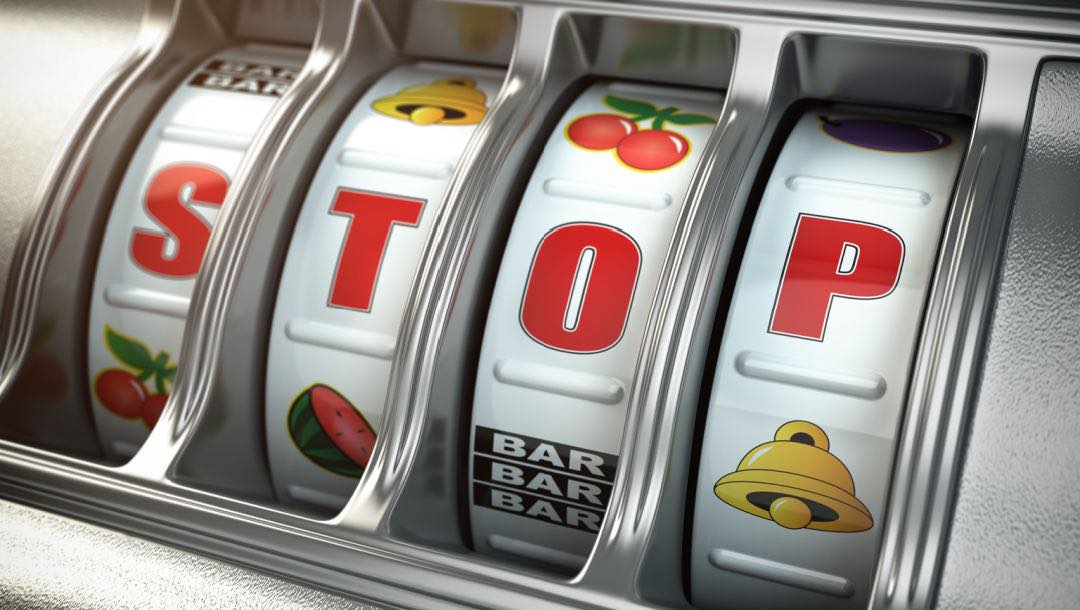Playing online casino games is incredibly convenient. But this convenience can be harmful if you don’t exercise self-control. Problem gambling can destroy lives and families. BetMGM is dedicated to preventing gambling problems. Even more, it wants to empower players to help their own friends or loved ones if they suspect their gambling has become an addiction. Read on to see what signs to look out for and how to help someone with a gambling addiction.
What Is Problem Gambling?
What’s the difference between someone who enjoys playing online and gambling and someone with an addiction? Gambling addiction, that is, compulsive or problem gambling, is when a player has an uncontrollable urge to gamble or bet despite the negative impact the habit may have on their life. Budgets, relationships, and well-being aren’t respected.
Gambling addiction is a chronic disorder. It can happen to anyone and is not always related to social standing, wealth, age, or character flaws and weaknesses. Even though most people can play online gambling games without becoming addicted, others may gamble excessively and deplete their financial resources. Once gambling habits have reached this point, gambling can lead to depression, anxiety, and feelings of isolation, guilt, anger, frustration, and shame.
The Science of Problem Gambling
Let’s look at what addiction science can teach us about problem gambling. Gambling stimulates the brain’s reward system or dopamine neurotransmitters in the same way that drugs and alcohol do. Like people with substance addiction, problem gamblers develop tolerance in their betting and need games with higher risks and stakes to reach the same “high” they felt before. The addiction can result in the same cravings, anxiety, irritability, depression, and insomnia linked to substance abuse.
In fact, casinos have been fine-tuned to appeal to people’s most basic instincts. The psychological appeal of casinos makes them more attractive and entices people to play. This comes down to everything from game design to the way machines and tables are laid out on a casino floor and even the type of carpets used. Online games like online poker have made casino games even more accessible and convenient to use, and there is a larger range of games to choose from. So, this could be even more tempting for someone who may have a gambling problem.
However, no matter how addicted your loved ones may be, problem gambling is treatable, and there is always an option for gambling problem help. Even though the person may want to self-isolate because of their shame and depression, drawing close to them and supporting them is the first step to recovery.
Causes of Gambling Addiction
There are many possible causes of addiction. While other people may play games like live dealer blackjack or slots for the thrill and excitement, others turn to these games to cope with stress at home and work or relieve emotional turmoil. But there is a vicious cycle at work here. As these problems worsen — ironically, partly because of their gambling — their dependence on gambling also increases. While some players may have a history of substance abuse and addiction, others use gambling to help them cope with anxiety, depression, or other mental illnesses.
Experts also believe that people who suffer from gambling addiction have a genetic predisposition for reward-seeking behavior and tend to be impulsive or competitive in their everyday lives. This kind of behavior is normally evident in their gambling behavior and will influence what type of gambler they are.
Signs and Symptoms of Problem Gambling
What are the signs of a gambling problem? Look for the following to see if you or a loved one may have a gambling problem. What type of casino gamer are you? These signs can also help you spot red flags in your own gambling.

- Frequently exceeding your gambling budget.
- Gambling takes priority over work.
- Gambling takes priority over your personal relationships.
- Spending more time playing gambling games like online slot machines than you did before.
- Feeling the need to increase the amount of money you gamble with.
- Not being able to take breaks from gambling.
- Feeling irritable and restless when you can’t gamble.
- Gambling to improve emotions of hopelessness and anxiety.
- Gambling to escape life problems and conflicts.
- Chasing losses and gambling to get the money you lost.
- Hiding your gambling activity and lying to friends and family.
- Stealing or committing fraud to support your gambling habit.
- Taking loans from banks and friends in order to gamble.
How To Help Someone With a Gambling Addiction
The first step to helping someone with a gambling addiction is deciding to support them on their journey to recovery. Here are the steps to take to help a problem gambler.
Step 1: Prepare For a Discussion With Them
For this initial step, read articles from reputable sources to learn more about problem gambling. You can also talk to addiction professionals so they can help you prepare for the confrontation with your friend or loved one. Visit the BetMGM and GameSense Responsible Gambling page for resources for family and friends.
Step 2: Talk to Your Friend or Loved One About Their Addiction
This is undoubtedly the hardest part of helping your loved one recognize that they have a gambling problem. It’s time to tell your friend how their gambling habits affect them and others around them. Don’t be discouraged if your friend becomes defensive or angry — this is normal. Be careful not to judge, lecture, beg, or criticize them. Still, be frank and straightforward. Feel free to pause the conversation until another time if your emotions take over. Let them know you are there for them and help is available.
Step 3: Help Them Manage Their Finances and Lives
Once they have admitted to having a problem, they are ready for treatment. You can start with damage control only when both of you are aware of the damage. You can talk to them about taking the following measures to help start their journey of recovery.
- Confess if they’ve depleted savings or resorted to theft to support their addiction.
- Turn their finances and accounts over to a trusted friend or family member and stop all credit cards until further notice.
- Close or pause all online gambling accounts and delete online gambling apps from their phone.
- Make an appointment with a debt counselor if they’ve incurred debt.
- Stop communication with friends who gamble online or in person.
- Stay away from any locations that offer gambling and betting.
- Join clubs and take up new and old hobbies to distract them in anxious moments.
- Start a challenge, such as preparing for a marathon, to replace the dopamine they received from gambling and betting.
- Start being intentional about stress management with breathwork, yoga, and meditation.
Step 4: Seek Professional Help

With your help, your friend or loved one will become empowered to reach out and ask for help from a professional. It is important to encourage them to do so. Like other addictions, gambling addictions are complicated psychological issues that need the support of a medical professional. Gambling treatment is similar to the treatment of other addictions. This will include education, support groups, and counseling. It may also lead to professionals diagnosing other underlying issues like depression, anxiety, ADHD, BPD, or others, which will enable them to prescribe treatment plans. Encourage them to join a Twelve Step Program such as Gamblers Anonymous to meet others on the road to recovery.
Step 5: Be Part Of the Solution and Not The Problem
Don’t be an enabler. You can simultaneously love and support your friend while allowing them to take responsibility for their problem. Don’t protect them from the consequences of their behavior by doing things such as paying their bills or lending them money. Don’t justify their behavior or let them assign blame to anyone else. This may be challenging, but it gives them more motivation to change.
It’s easy to lose control of your gambling if the right measures aren’t in place. When you play casino table games, poker tournaments, and online slots, set time and money limits to remind you to stop. Prioritize your relationships and don’t self-isolate to focus on gambling. As easy as it is to keep spinning an online slot, don’t try to win your money back. Once it’s time to stop, don’t make any excuses.
Keep The Fun in Gambling With BetMGM
BetMGM is a gambler’s paradise. However, the exciting online catalog is paired with an emphasis on the importance of responsible gambling. When you register, BetMGM wants to help you become a responsible gambler. BetMGM has partnered with GameSense to teach players how to gamble responsibly. If you feel you or a loved one has a gambling problem, call the gambling problem hotline at 1-800-GAMBLER.






